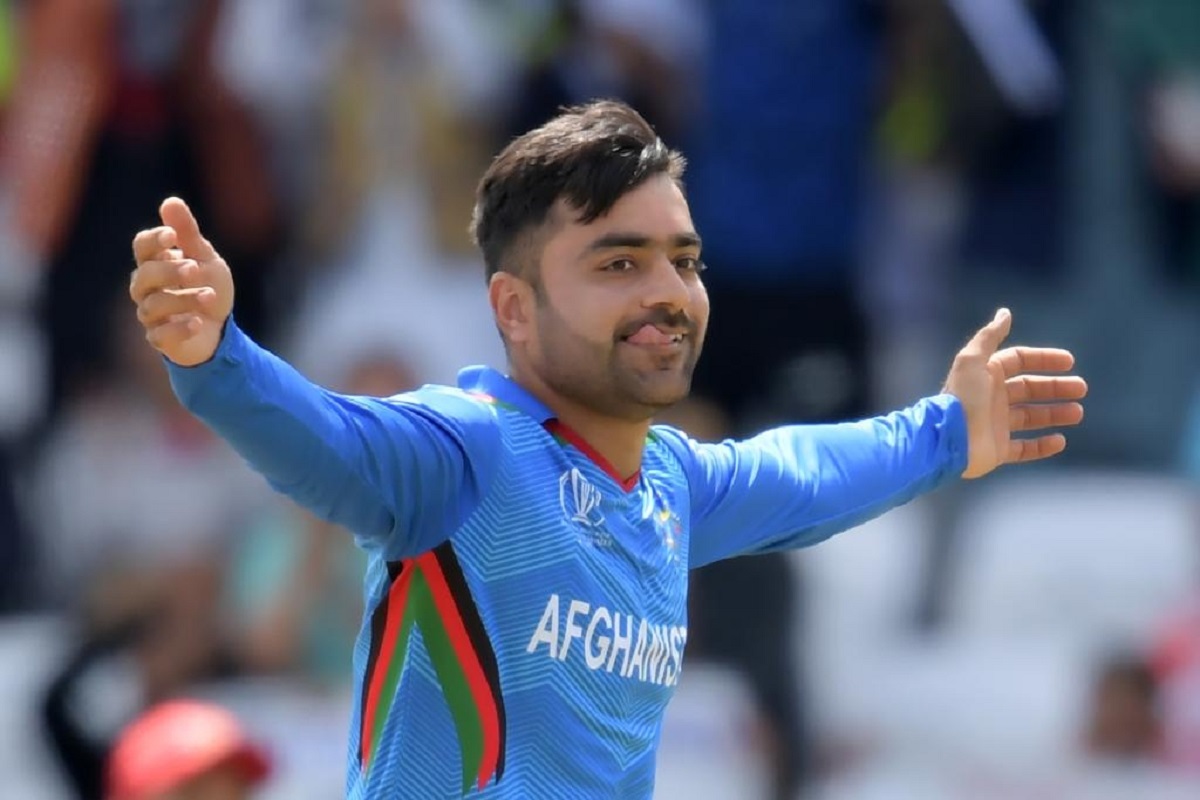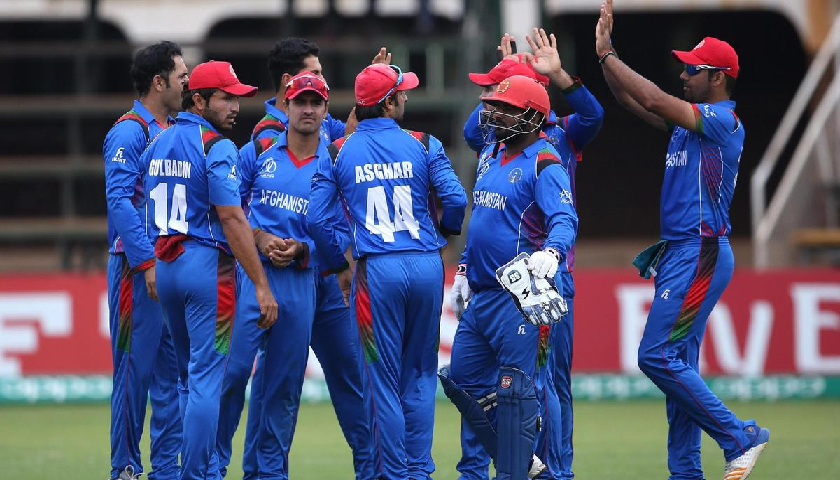Afghanistan’s top cricketers prepare for their next tour in Sri Lanka against Pakistan– just a few days after the country fell to the Taliban militants. The crack of the bat on the ball echoes around Kabul’s International Stadium.
The calm of the empty stadium is a surreal contrast to scenes just a few kilometres north, where tens of thousands of Afghans common mass at Kabul airport are desperately trying to flee on evacuation flights.

Afghanistan Pacer Naveen-ul-Haq Feels Fear In The Eyes Of Afghanistan’s Common People
Following the stunning victory of the hardline Islamists, many of the players in cricket-mad Afghanistan’s beloved national team are finding it difficult to focus on sport.
“The fear is there in their eyes, in their voices, even in their messages,” pace bowler Naveen-ul-Haq said of his teammates in Kabul during a BBC radio interview broadcast at the weekend.
The Kabul International Cricket Ground is just a few kilometers from the Afghan capital’s airport, where tens of thousands are desperately trying to flee on evacuation flights to countries safer than Afghanistan.
“The Taliban have said (they) won’t be troubling any sportsman, but nobody knows,” added Naveen-ul-Haq, speaking from the West Indies where he plays in the Caribbean Premier League.
The return of the Taliban has sparked widespread fear in Afghanistan and in the international community, reviving memories of their brutal first stint in power from 1996 to 2001 when they imposed a harsh version of Islamic law torturing the common people, especially women.
They banned most forms of entertainment — including many sports — and stadiums doubled as public execution venues. Sports the Taliban did allow were strictly controlled and were for only for men to play and watch.

Cricket was not among the sports the Taliban banned during their first regime. They did not mind cricket, however, and the game born centuries ago on the playing fields of England is popular among Taliban fighters too. That has done little to ease the fears of many players, for whom the fall of the country is about a lot more than the sport.
“I appeal to the leaders of the world; please don’t let Afghanistan go into chaos,” former national captain Mohammad Nabi tweeted days before the fall of Kabul, as the Taliban were rapidly capturing territory.
“We need your support. We want peace.”
Cricket was barely known in the nation until the early 2000s, and its explosive rise in popularity was linked with conflict — the sport was picked up in Pakistan by Afghan refugees who then seeded it in their home country. Cricket’s popularity exploded in Afghanistan during the last 20 years.
But the national team has enjoyed a meteoric rise on the international scene since then, gaining coveted Test status in 2017 and now ranked among the top-10 sides in the world in the one-day and Twenty20 formats. In the last 20 years, it has also emerged as a powerful symbol of national unity in a country riven by civil war and ethnic conflict.
“If you find positive news, if you see people happy together, it’s only cricket… that brings it to the country. It’s that important to Afghanistan,” Haq told the BBC.
“It’s more than a game for Afghanistan’s people.”
Afghanistan’s cricket team has also emerged as a powerful symbol of national unity in recent years. That connection with national identity was visible on Afghanistan’s independence day — August 19, less than a week after the fall of Kabul. Afghan cricketers marked it by tweeting pictures and emojis of the tri-color national flag, which the Taliban have replaced with their white banner in areas under their control.
All-rounder Samiullah Shinwari had earlier tweeted a photo with the date of the Taliban takeover of Kabul — August 15 — and the words: “The day Afghans lost their country and the whole world just watched.”
For the Afghan players currently outside the country, there are fears for their loved ones back home. Youths play cricket near the site of the Bamiyan Buddha statues, which were destroyed by the Taliban in 2001.
Afghanistan’s Rashid Khan Is Worried About His Family
The family of Rashid Khan — Afghanistan’s biggest cricket star — can’t leave the country, according to former England star Kevin Pietersen, who spoke to him last week during a tournament in Britain.
“We had a long chat here on the boundary talking about it and (Khan) is worried: he can’t get his family out of Afghanistan,” Pietersen told Sky Sports.
There are positive signs too. On Sunday, the Afghanistan Cricket Board tweeted pictures of its newly reappointed chairman to indicate it would be business as usual.
Despite the uncertainty, Afghanistan’s cricket authorities have said their upcoming series against Pakistan, to be played in Sri Lanka, will go ahead. Cricket was picked up in Pakistan by Afghan refugees who then seeded it in their home country. With no commercial flights operating from Afghanistan, an official said the team would drive to Pakistan and fly out from there.

But even for those who are able to play away from Afghanistan, such as Naveen-ul-Haq in the West Indies, the images from home are difficult to ignore.
“You forget about it for a minute or two to focus on cricket but it jumps into your mind again,” he told the BBC.
“I can’t say that I will be fully focused on playing only cricket because you can’t when you see your country like that.”
Rashid Khan, Mohammed Nabi, and Mujeeb-ur Rahman are some of the Afghanistan players who are regular features in IPL teams. Rashid Khan is one of the most sought-after T20 freelancers in world cricket currently. Both Mohammed Nabi and Rashid Khan have urged the world leaders to intervene as Afghanistan faces its worst socio-political crisis in the last two decades.
